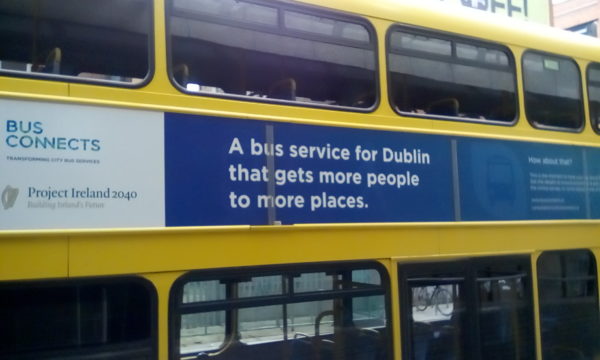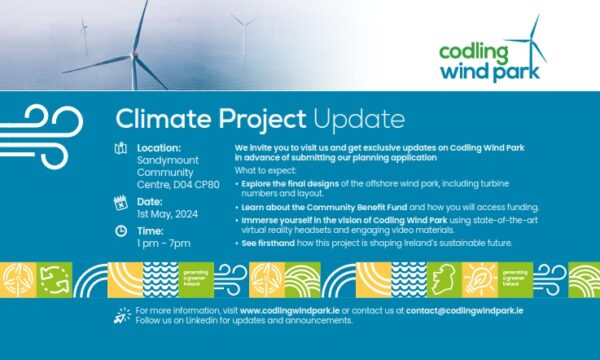BY Kathrin Kobus
When back in autumn 2018 BusConnects first plans for redesigning the public transport network were announced the reaction was – mixed. Spines, orbitals, radials were word coinages we have to get familiar with. And of course a simplified fare charge system.

Self advertising for Dublin Bus
How about another idea – making public transport free of any charge? One party, Solidarity -People before Profit (S-PBP) put this proposal in their manifesto. The idea itself does not come out of the blue. For example the Estonian capital Tallin provides free public transport since 2013.
The state of Luxembourg will introduce the same from 1st of March 2020. Bus, tram and train journeys are going to be free of charge except when you choose to travel first class on trains.
Luxembourg is the second smallest country in the EU with only 600,000 inhabitants. The problems there are quite similar to Dublin: an overheated housing market, skyrocketing rents, a commuting workforce from neighbouring countries France, Belgium and Germany, rush hours where nothing is rushing on traffic congested streets and roads.
The numbers for Luxembourg: 90% of the current, outgoing public transport system are already funded via the taxpayer. The remaining 10% are regarded as manageable by the centre left government and the advantages listed include increase of the tram line service (battery operated so no overhead electricity is needed), parking spaces for private cars outside the city and then switch onto a reliable and punctual public means of transport: i.e. bus, tram or train.
The Park and Ride system it is called and will have to prove its efficiency. Another plan sees the introduction of separate lanes for private cars travelling with three or more passengers to further reduce the number of cars with only driver on board.
Modu 2.0 is they keyword for the Luxembourg public transport model.
No plan or redesign of such magnitude can be simply transferred to another city or country. At least it might be an idea to have a closer look how similar problems are approached from another angle, before there is a rush to introduce a flat fare of (probably) €2.50 for 90 minutes.
Current problems include Luas trains taken out of service, busses being fined for not meeting timetable targets whether Dublin Bus or Go Ahead, and recurring issues of antisocial behaviour on public transport Dart, Luas and Dublin Bus.
The next chapter of BusConnects for 2020 will see the finalisation of the network design.
(picture by author)



